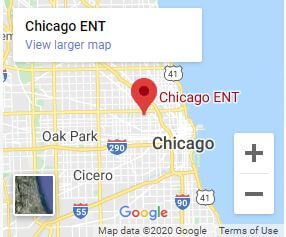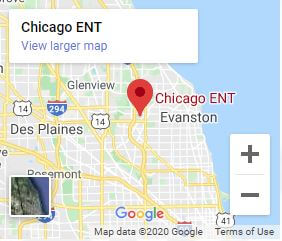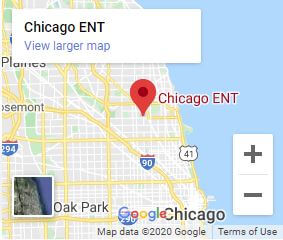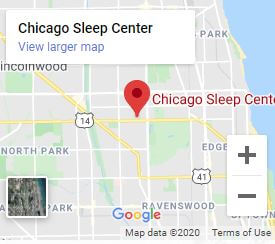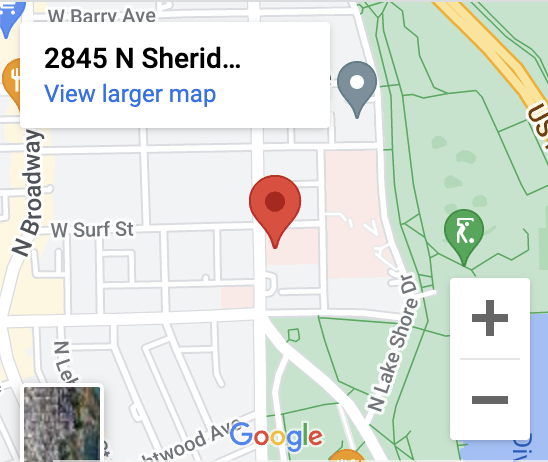Do you have a burning or scratchy feeling at the back of your throat? You may have a throat infection.
Throat infections are uncomfortable and can be painful, affecting your ability to talk, eat, and drink. Keep reading to learn more about a throat infection and the common signs of a throat infection.
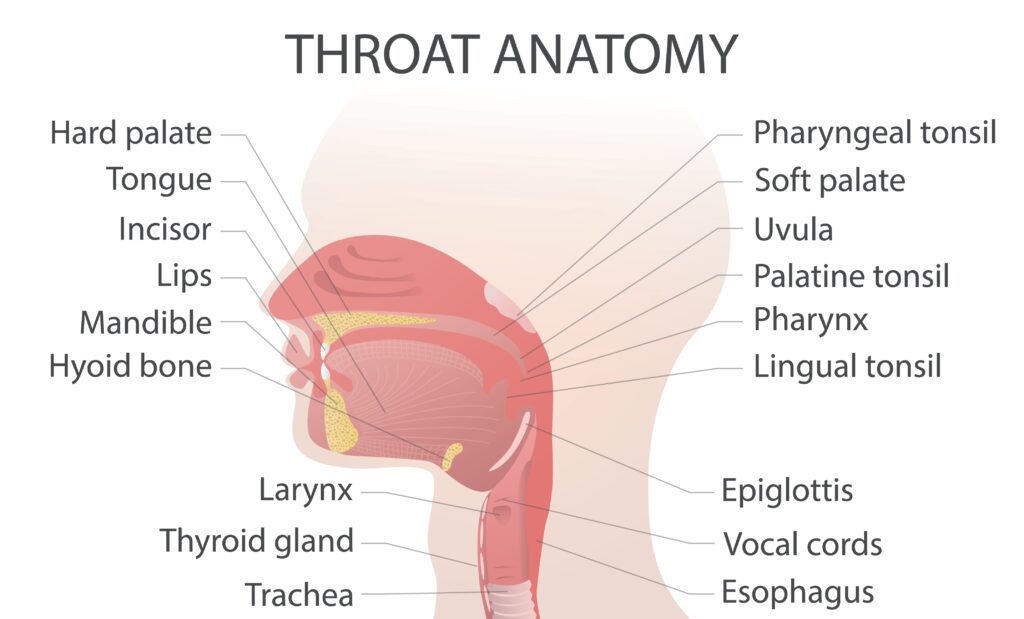
What is a Throat Infection?
Your throat, or pharynx, is a ring-like tube that carries air to the lungs and food and liquids to the esophagus. A throat infection or pharyngitis is inflammation of the throat tissues.
A throat infection causes swelling, discomfort, and redness of the throat structures. Viral infections like the flu or a cold cause most throat infections.
Less commonly, a throat infection can also be caused by bacteria. Other causes of throat infections include:
- Allergies
- Acid reflux
- Glandular fever
- Post-nasal drip
- Mono (mononucleosis)
- GERD (Gastro-esophageal reflux)
- Irritation from air pollution or voice overuse
- Smoking or exposure to second-hand smoke
- Signs of a Throat Infection
The typical symptoms of a throat infection include:
Pain in the Throat
A throat infection can feel like your throat is burning. When viruses or bacteria enter your throat, they may cause an infection that makes it swollen, tender, and painful.
The pain may worsen with talking or swallowing. It can also prevent you from getting enough sleep.
Cough
Coughing is another common sign of a throat infection. It occurs when there’s irritation in your throat.
When this happens, your nervous system sends a signal to your brain stem (the stalk-shaped part at the base of the brain). Your brain stem then responds by prompting the muscles in your abdomen to contract and remove a burst of air, causing you to cough.
Swollen Neck Glands
Swollen glands in your neck are usually a tell-tale sign of a throat infection. When you have a throat infection, the glands in your neck might swell and feel tender or painful.
Swollen neck glands show that your body is fighting off an infection. These glands are essentially lymph nodes. Lymph nodes are soft, tiny structures part of your immune system.
Lymph nodes swell when they produce many white blood cells, removing viruses or bacteria that make you sick.
Hoarse Voice
You may notice a change in the quality of your voice when you have a throat infection. It could be hoarse, raspy, or scratchy.
The change in voice is usually a result of inflammation in your throat and voice box. Inside your voice box are two vocal cords that allow you to produce sound when you speak.
The air passing through your vocal cords causes them to vibrate and create the sound of your voice. Swelling of the vocal cords prevents them from vibrating properly, causing your voice to sound hoarse.
Fever

A fever is a temporary increase in body temperature, usually caused by a throat infection. The average body temperature is about 98.6°F.
A temperature of 100.4°F or higher is usually considered a fever. You may feel warm, shivery, or cold when you have a fever.
A fever isn’t an illness; it’s generally a sign that your body is fighting an infection. It stimulates your immune system.
Having a fever also makes it harder for bacteria and viruses that cause infection to survive in your body.
Body Aches
Your immune system is activated when you have a viral or bacterial infection. It responds by releasing white blood cells to fight off an infection.
The response can lead to inflammation, leaving your body with aches and pains.
Headache
You may experience headaches due to a throat infection. Your head might feel achy, heavy, or dull.
The pain from a headache may come on gradually and vary from mild to moderate. When caused by an infection, the headache is often felt all over your head.
Trouble Swallowing
Most swallowing problems begin in the throat and could be due to a throat infection. A throat infection can make swallowing painful.
Some people may feel like food is stuck in their throats, while others might cough, choke, or gag when swallowing.
Loss of Appetite
You may develop a loss of appetite when you have a throat infection. A reduced appetite happens when you have a decreased desire to eat or don’t feel hungry.
A loss of appetite will cause you to eat less, leading to lower energy levels and fatigue. When you have a bacterial or viral infection, your body releases cytokines as part of an inflammatory response following a throat infection.
Cytokines act on neurons in your brain that regulate appetite. This suppresses your appetite, making you less keen to eat.
When to See an ENT Specialist for a Throat Infection
Most throat infections go away on their own within 5 to 10 days. They can be relieved by over-the-counter pain medications like ibuprofen, aspirin, and acetaminophen.
Gargling warm salt water several times a day may also help. However, you must treat bacterial throat infections like tonsillitis or strep throat with antibiotics to prevent complications.
If left untreated, a throat infection may lead to complications such as peritonsillar abscess, rheumatic fever, and spread of infection to the sinuses, ear, and other surrounding structures.
You should see an ENT specialist at Chicago ENT about a throat infection if you have:
- A persistent or severe sore throat that doesn’t resolve
- A rash
- Earache
- Swelling in the neck or face
- Blood in your mucus or saliva
- Fever that lasts for a few days
- Hoarseness that lingers over two weeks
- Difficulty swallowing, breathing, or opening your mouth

Find Relief from Your Throat Infection
If your throat infection lasts longer than a week or worsens, you should seek help at Chicago ENT. Our expert ENT specialists can determine the cause of your throat infection and offer the most effective treatment to clear it up and prevent complications.
Do you suspect you have a throat infection? Schedule your appointment today at Chicago ENT at one of our five convenient locations and start your journey to feeling better.











